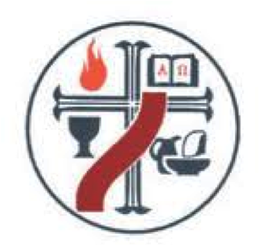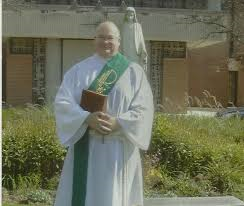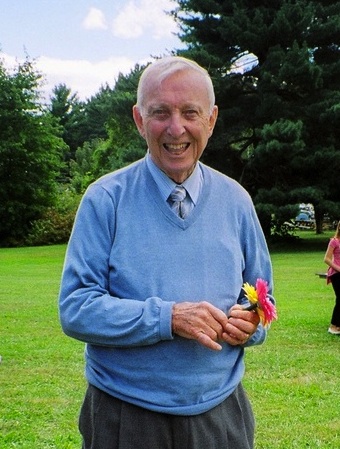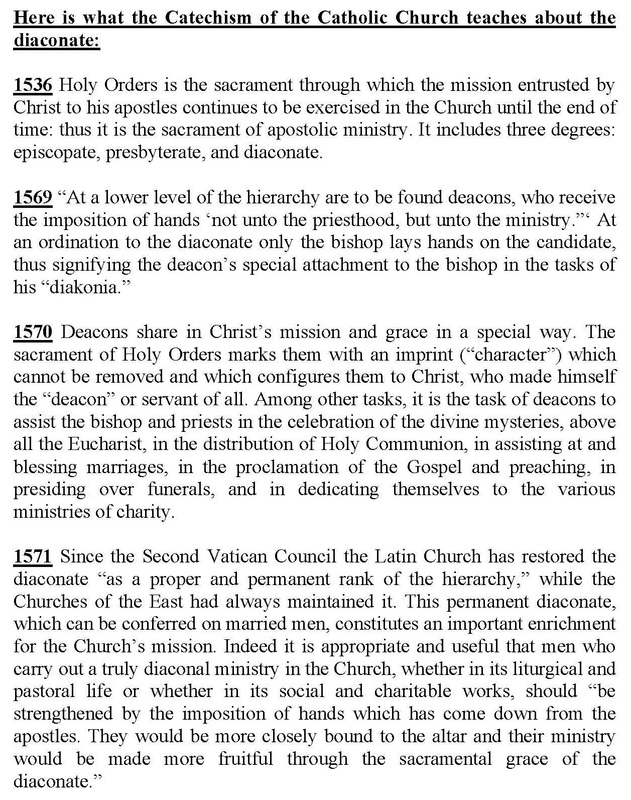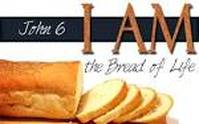
Thoughts On The Twenty First Sunday in Ordinary Time
The Risk of Faith
Engagement, betrothal, and marriage imply the faith that two young people have in one another. Though there are and should be reasons for this mutual faith, it cannot possibly be thought out logically. Attempting to do so would destroy the intuitive element of love in it. Dissecting a rose results in insight but kills the beautiful flower in the process. Applying this remark to our faith-relationship with God, we observe that faith is not understanding but taking the risk of the engagement. We have reasons for faith. In our best moments intuitively we feel there must be a transcendent element in reality - an ultimate reality. But the ultimate reason for faith escapes analytical thinking.
Like love, faith also knows its dark moments in which we think that God is absent, maybe even "dead." Great mystics have gone through this and in their writings refer to it as "the night of faith." It is not God who causes doubts and uncertainty, but our own frail human condition that blurs our vision so often.
This week's Bible readings deal with the faith-love commitment. Keep it exciting and alive as long as you live. Taste and see the goodness of the Lord.
Readings for This Sunday's Liturgy: Jos 24:1-2a, 15-17, 18b; Eph 5:21-32; Jn 6:60-69
The Risk of Faith
Engagement, betrothal, and marriage imply the faith that two young people have in one another. Though there are and should be reasons for this mutual faith, it cannot possibly be thought out logically. Attempting to do so would destroy the intuitive element of love in it. Dissecting a rose results in insight but kills the beautiful flower in the process. Applying this remark to our faith-relationship with God, we observe that faith is not understanding but taking the risk of the engagement. We have reasons for faith. In our best moments intuitively we feel there must be a transcendent element in reality - an ultimate reality. But the ultimate reason for faith escapes analytical thinking.
Like love, faith also knows its dark moments in which we think that God is absent, maybe even "dead." Great mystics have gone through this and in their writings refer to it as "the night of faith." It is not God who causes doubts and uncertainty, but our own frail human condition that blurs our vision so often.
This week's Bible readings deal with the faith-love commitment. Keep it exciting and alive as long as you live. Taste and see the goodness of the Lord.
Readings for This Sunday's Liturgy: Jos 24:1-2a, 15-17, 18b; Eph 5:21-32; Jn 6:60-69
| how_to_pray_the_rosary_.pdf |
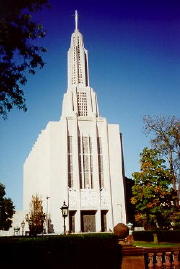
The Church Teaches..........
"The Church draws her life from the Eucharist. This truth does not simply express a daily experience of faith, but recapitulates the heart of the mystery of the Church."
Taken from Ecclesia de Eucharistia, 1
"The Second Vatican Council rightly proclaimed that the Eucharistic sacrifice is 'the source and summit of the Christian life'."
Taken from Ecclesia de Eucharistia, 1
The Church was born of the paschal mystery. For this very reason the Eucharist, which is in an outstanding way the sacrament of the paschal mystery, stands at the center of the Church's life.
Taken from Ecclesia de Eucharistia, 3
"The Church draws her life from the Eucharist. This truth does not simply express a daily experience of faith, but recapitulates the heart of the mystery of the Church."
Taken from Ecclesia de Eucharistia, 1
"The Second Vatican Council rightly proclaimed that the Eucharistic sacrifice is 'the source and summit of the Christian life'."
Taken from Ecclesia de Eucharistia, 1
The Church was born of the paschal mystery. For this very reason the Eucharist, which is in an outstanding way the sacrament of the paschal mystery, stands at the center of the Church's life.
Taken from Ecclesia de Eucharistia, 3
Who is a Deacon?
A deacon is an ordained minister of the Catholic Church. There are three groups, or "orders," of ordained ministers in the Church: bishops, presbyters and deacons. Deacons are ordained as a sacramental sign to the Church and to the world of Christ, who came "to serve and not to be served." The entire Church is called by Christ to serve, and the deacon, in virtue of his sacramental ordination and through his various ministries, is to be a servant in a servant-Church.
Charity, the Word, and Sacrament are the cornerstones of a Deacon’s ministry. Deacons serve in areas of, Social Justice, Prison Ministry, Education, Youth Ministry, RCIA, Sacramental Preparation, Scripture Study, Pastoral Care, Hospice, Hospital Ministry, Bereavement, Liturgy and many more.
A deacon is an ordained minister of the Catholic Church. There are three groups, or "orders," of ordained ministers in the Church: bishops, presbyters and deacons. Deacons are ordained as a sacramental sign to the Church and to the world of Christ, who came "to serve and not to be served." The entire Church is called by Christ to serve, and the deacon, in virtue of his sacramental ordination and through his various ministries, is to be a servant in a servant-Church.
Charity, the Word, and Sacrament are the cornerstones of a Deacon’s ministry. Deacons serve in areas of, Social Justice, Prison Ministry, Education, Youth Ministry, RCIA, Sacramental Preparation, Scripture Study, Pastoral Care, Hospice, Hospital Ministry, Bereavement, Liturgy and many more.
